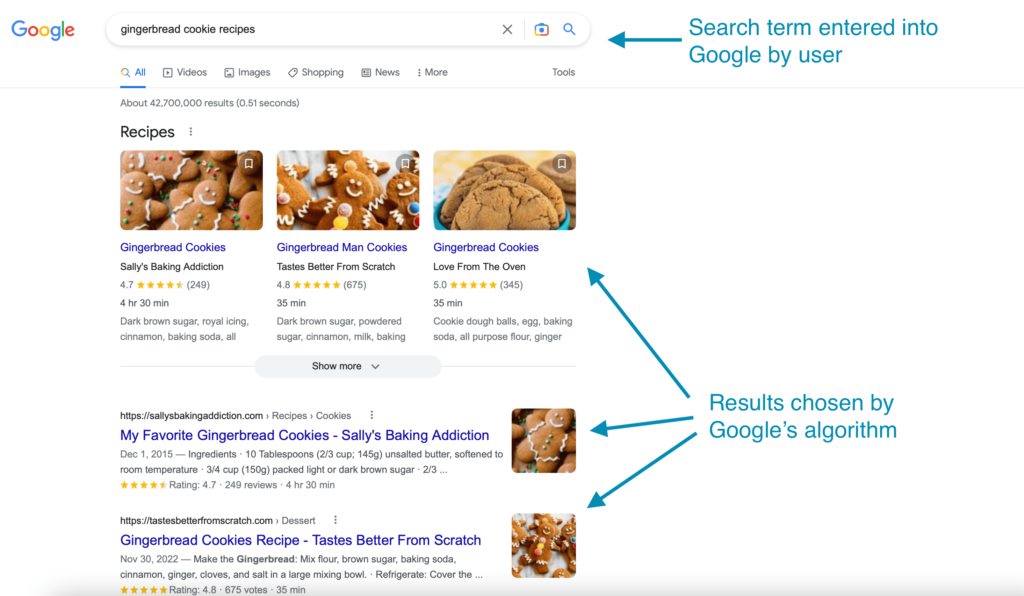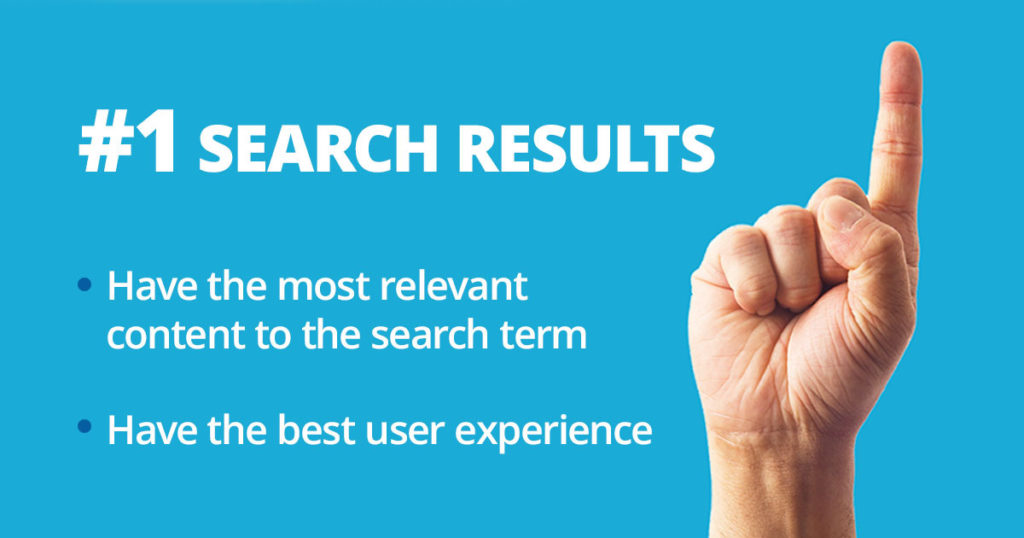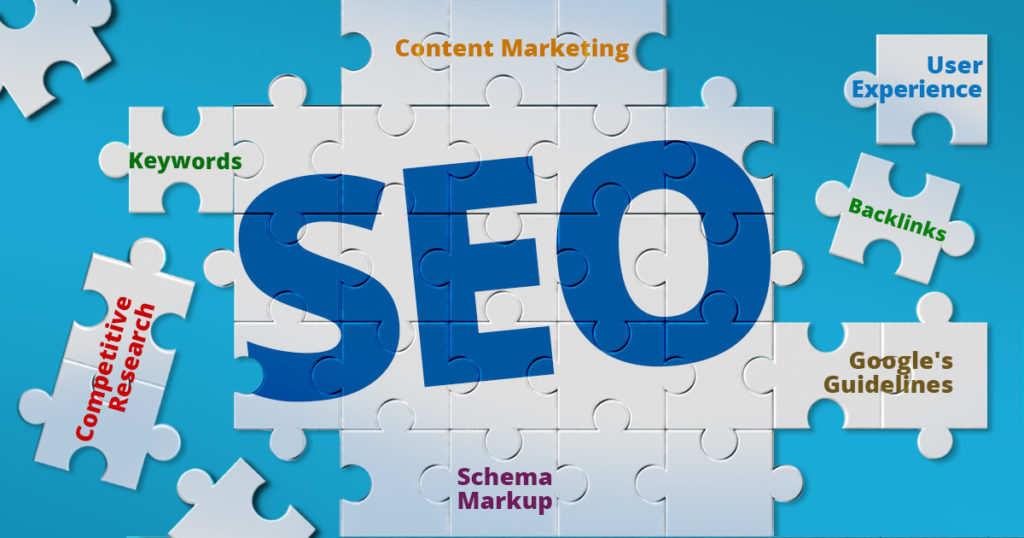Introduction to this SEO Newsletter Series
In our previous installment on SEO—Grow Enrollments with SEO-Optimized Landing Pages—we gave a broad overview of using keyword-rich page copy to rank in Google Search. This series will go much deeper into the factors that affect how SEO works and provide action steps to improve page performance in Google. This initial newsletter introduces SEO and the factors that affect it. Each of the factors covered this month will be addressed thoroughly in future installments. The information in this series is applicable to anyone looking to improve their SEO.
What is SEO?
SEO stands for “Search Engine Optimization,” which means taking steps to help a website perform better in Google Search. Optimized websites have more visibility among people who use Google to find information and services. Conversely, websites that are not optimized miss out on those users.
When a user searches for something in Google, such as “gingerbread cookie recipes,” the search results are not chosen at random. Rather, Google uses an algorithm to choose the best results.

Google wants to provide the best content to people. That means websites with the most relevant content and best user experience appear higher in search results.

SEO is not about “tricking” Google but instead working with Google to provide the best user experience. Google analyzes websites with users in mind. They want users to find your content, so you can think of SEO as a set of best practices to make that happen.

Why is SEO Important?
SEO efforts are low risk and have a high potential reward. Most SEO practices involve improving the user experience of a website, which costs nothing except a little time and effort.
For example, the job platform company Saramin increased their organic search traffic by 15% one year after fixing SEO errors found in Google Search Console. They also saw an increase in the quality of their traffic. In subsequent years as Saramin continued further SEO efforts, they saw incremental traffic increases year over year and, by 2019, had increased their overall organic search traffic by 102%.

Though SEO can take time, and the impact may seem small at first, there is a “snowball effect.”
Factors that Can Affect SEO

- Using the right keywords in your page copy. You want to make sure to incorporate words that users are searching for into your page copy. Certain search terms are more popular than others, and with SEO research, it’s possible to determine the best phrases to have in your copy so that you capture these popular search terms.
- Providing a good user experience. User experience is an umbrella term that essentially focuses on ensuring that websites are easy and pleasing to use. There are many elements to providing a good user experience, but Google places special emphasis on certain elements over others. For example, the most important element of user experience, according to Google, is page speed, or how quickly your page loads. I will go into some other aspects of user experience in future newsletters.
- Engaging in content marketing efforts, like blog posts, newsletters, and social media posts can drive traffic. Each time you promote a page using supplementary content, you are telling Google that the page you are promoting is important.
- Other websites linking to you. If external sites, such as other universities or reputable course directory sites, link to your website, it is a signal to Google that your website has authority in your field.
- Appearing attractive to users on the Google search results page. If you search for anything in Google, you will notice that certain search results look different than others. Some are accompanied by images or star ratings. That is because those websites use a piece of code called Schema Markup. Pages that use Schema Markup stand out in search results and are more likely to get clicks.
- Competitors optimizing or updating their website can give them a boost in Google search results, pushing your page down. To combat this, we can use competitive research.
- Violating Google’s best practices can also negatively impact SEO, such as repeating the same keyword repeatedly in an unnatural way or otherwise trying to “game” the system or mislead users.
What We Can Do to Improve SEO
Fortunately, many of the factors that impact SEO are in our control. We can implement the steps outlined by Google to improve our organic search visibility. Many of these steps are straightforward and easy to implement, such as changing the copy on your page to include the proper keywords or fixing errors in Google Search Console, while others will require a developer.
If you would like to hear more about keywords, user experience, content marketing, schema markup, and other aspects of SEO, stay tuned for future newsletters, which will explore these concepts in depth. Many of these SEO tips will be specifically tailored to ed2go course pages.
In our next installment, we will cover how to use keyword research to find the most effective language to include in your copy.
If you have any questions, please contact your Account Manager.
